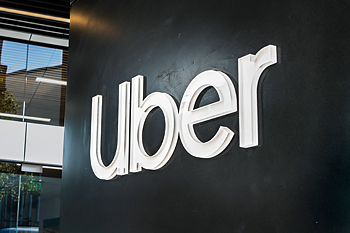Employment trends expert weighs in
 Today Uber drivers from around New York will gather together to protest outside Uber’s Manhattan headquarters. Soaring gas prices and lack of benefits have led many ride-share drivers to protest their status as gig workers instead of employees, and Uber drivers in Illinois and California have also staged similar protests.
Today Uber drivers from around New York will gather together to protest outside Uber’s Manhattan headquarters. Soaring gas prices and lack of benefits have led many ride-share drivers to protest their status as gig workers instead of employees, and Uber drivers in Illinois and California have also staged similar protests.
Rob Wilson, employment trends expert and President of Employco USA, a national employment solutions firm with locations across the country, says that Uber drivers are not the only workers who are decrying astronomical gas prices and its impact on their take-home pay.
“With gas prices this high, the sad reality is that a minimum wage worker can end up spending an entire day’s wages just to fill up their gas tank,” says Wilson. “If employers want to keep their workers satisfied and in the office, they need to get clever about how they can help employees survive inflated prices.”
For one thing, Wilson says that companies might consider offering a commuter stipend, which workers can choose to either spend on gas or on transportation costs like the bus or train.
“Finding willing workers right now is such a challenge,” says Wilson. “But if companies were to offer gas money as an incentive, it would make them much more desirable than their competitors.”
Wilson also suggests helping to organize in-office carpools among colleagues who share similar schedules and live in the same neighborhood.
“This can be tricky with COVID concerns, but if employees are masked up and vaccinated, carpooling can be an effective way to cut down on gas costs as well as to build camaraderie around the office,” says the HR expert.
Wilson also advises incentivizing taking the bus or the train, where possible. “If employees don’t want to take the bus because it takes them 30 minutes longer to reach the office, consider opening up your doors a little bit later than normal. Give your employees a little extra breathing room in the morning so they don’t feel like they have to race down the freeway in their car. This saves workers gas money and it also helps to engender feelings of respect and value.”
But Wilson cautions against those workers who might try to use gas prices to switch back to remote work.
“If your office is comfortable with remote employees, then that’s fine. But most of our clients are telling us that they need their workers in-office or the quality of work declines. If you’re at home on Zoom, you’re not building personal relationships. You’re not finding mentors or striving towards a promotion,” says Wilson. “You’re miles away from most of your colleagues, and realistically, that may not be good for your career.”
For more on this topic, please contact Rob Wilson at rwilson@thewilsoncompanies.com.